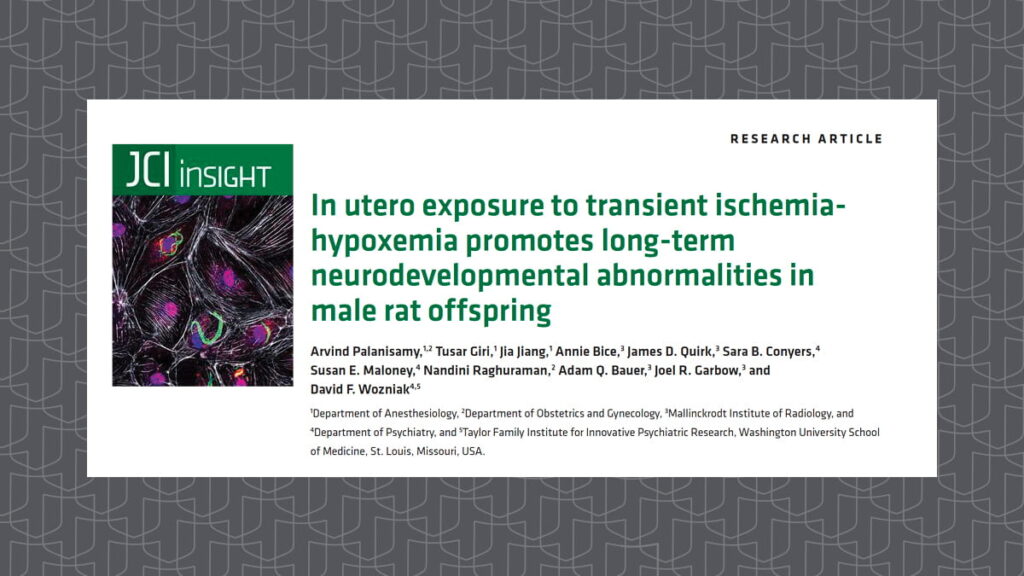Transient impairment of fetal oxygenation is common during labor, yet it is unclear whether these episodes have a lasting impact on the developing brain.
In a study published on May 21 in JCI Insight, Dr. Arvind Palanisamy and his collaborators show that even short-lived hypoxic insults induce long-term neurodevelopmental dysfunction, especially in males.
By inducing transient and reversible placental ischemia with oxytocin, the authors uncovered severe oxidative stress in the fetal brain, brain-region specific dysregulation of mitochondrial biology, impaired social behavior, and altered functional brain connectivity, particularly in the male offspring. More importantly, none of the offspring had impaired motor function, which is the hallmark of a more severe version of birth asphyxia called hypoxic-ischemic encephalopathy. Collectively, these findings suggest that even milder forms of birth asphyxia could have detrimental consequences for the developing brain.
“I have been incredibly fortunate to work with truly stellar collaborators at WashU without whom this translational study would not have been possible,” said Dr. Palanisamy. “This study raises some provocative questions and lays a robust foundation for prospective studies in newborn babies exposed to transient hypoxic episodes during labor and delivery.”
